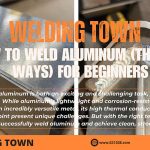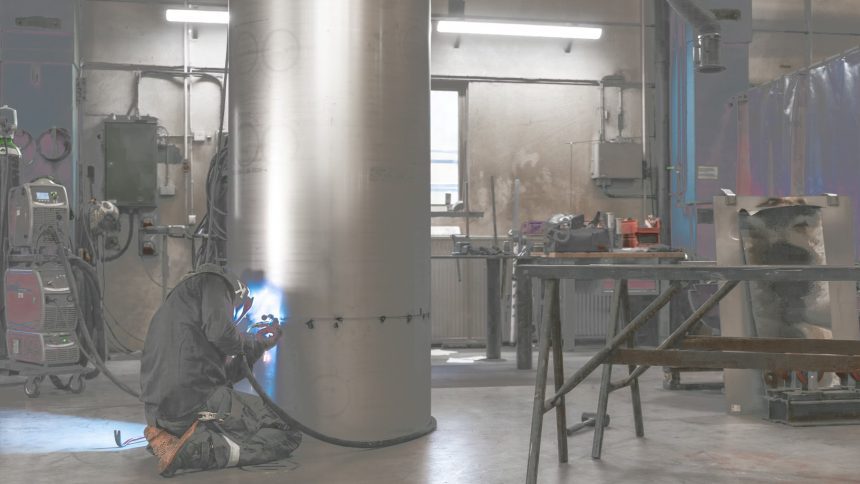Aluminum, an extraordinary and unparalleled metal, boasts a myriad of advantageous attributes that render it a prime choice for diverse projects. Given its exceptional properties, the practice of Tungsten Inert Gas (TIG) welding on aluminum is not an uncommon occurrence.
Aluminum is a difficult material to weld. Here is a guide covering all the major aspects of TIG welding on aluminum.
Welding Town
Selecting Electrode and Filler Metal for TIG Welds on Aluminum
Optimizing TIG Welding on Aluminum with the Right Tungsten Electrode
In TIG welding, a tungsten rod serves as the electrode—a metal boasting a remarkably high melting temperature, remaining solid throughout the welding process. However, not all electrodes are made of pure tungsten, as specific welding scenarios necessitate tailored conditions within the weld pool. Electromagnetic phenomena may allow a few tungsten molecules to enter the weld pool without melting, making the choice of electrode critical, especially for unique processes like aluminum welds.
To achieve flawless welds on aluminum, selecting the appropriate tungsten electrode for the specific material and thickness can pose a challenge. Let’s delve into each type of tungsten electrode and how they influence aluminum welding:
Pure Tungsten: Ideal for AC applications and not recommended for DC, pure tungsten consists of 99.5 percent tungsten, granting it the capability to form a ball or rounded shape with ease. This electrode excels in low to medium amperages when working with aluminum and magnesium alloys, rendering it a perfect choice for experienced welders dealing with aluminum welds.
Rare Earth: The latest advancement in tungsten electrodes, Rare Earth, incorporates hybrid combinations of oxides. While best suited for DC current applications, it may not perform optimally with AC. Despite this limitation, Rare Earth electrodes are a commendable choice for amateur welders venturing into TIG aluminum welds.
Zirconiated (White): Comprising 99.1 percent pure tungsten and 0.15-0.4 percent zirconium oxides, these electrodes are an excellent alternative to pure tungsten. They maintain balled tips effectively and exhibit resistance to contamination, making them highly recommended for novice welders embarking on TIG aluminum welds.
Thoriated: Possessing 97.3 percent pure tungsten and 2 percent thorium oxide with low radioactivity, these electrodes find application in DC welding of steels and various materials. However, they are unsuitable for aluminum welding and should be avoided for such purposes.
Ceriated: Ideally used for both alternating and direct current applications, particularly with inverter-based constant current power sources. Characterized by a low erosion rate and optimum performance at low amperage, Ceriated electrodes present another viable option for TIG aluminum welds.
Understanding the unique attributes of each tungsten electrode empowers welders to make informed decisions, ensuring precision and success in TIG welding on aluminum.










